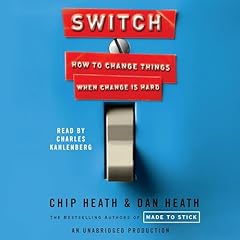
Charity Detox
What Charity Would Look Like If We Cared About Results
No se pudo agregar al carrito
Add to Cart failed.
Error al Agregar a Lista de Deseos.
Error al eliminar de la lista de deseos.
Error al añadir a tu biblioteca
Error al seguir el podcast
Error al dejar de seguir el podcast
 Exclusivo para miembros Prime: ¿Nuevo en Audible? Obtén 2 audiolibros gratis con tu prueba.
Exclusivo para miembros Prime: ¿Nuevo en Audible? Obtén 2 audiolibros gratis con tu prueba.Compra ahora por $17.31
-
Narrado por:
-
Mike Lenz
-
De:
-
Robert D. Lupton
The veteran urban activist and author of the revolutionary Toxic Charity returns with a headline-making book that offers proven, results-oriented ideas for transforming our system of giving.
In Toxic Charity, Robert D. Lupton revealed the truth about modern charity programs meant to help the poor and disenfranchised. While charity makes donors feel better, he argued, it often hurts those it seeks to help. At the forefront of this burgeoning yet ineffective compassion industry are American churches, which spend billions on dependency-producing programs, including food pantries. But what would charity look like if we, instead, measured it by its ability to alleviate poverty and needs?
That is the question at the heart of Charity Detox. Drawing on his many decades of experience, Lupton outlines how to structure programs that actually improve the quality of life of the poor and disenfranchised. He introduces many strategies that are revolutionizing what we do with our charity dollars, and offers numerous examples of organizations that have successfully adopted these groundbreaking new models. Only by redirecting our strategies and becoming committed to results, he argues, can charity enterprises truly become as transformative as our ideals.
©2015 Robert D. Lupton (P)2020 TantorLos oyentes también disfrutaron:




















Las personas que vieron esto también vieron:




a must-read for everyone hoping to help the poor
Se ha producido un error. Vuelve a intentarlo dentro de unos minutos.
Fundamentally Flawed
Se ha producido un error. Vuelve a intentarlo dentro de unos minutos.


